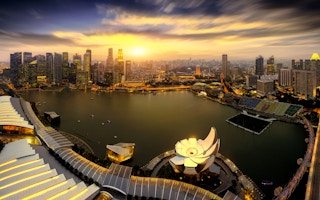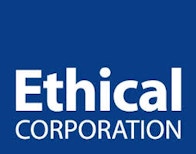Singapore-listed property giant City Developments is the first Singapore developer to be listed on three leading global sustainability listings and also the first to publish a GRI-checked Sustainability Report in 2008. Its chief sustainability officer Esther An talks about engaging customers, the future of the COP21 agreement, and how sustainability adds value to business innovation and long-term sustainable growth.
She started the sustainability journey for the company from the onset, establishing a CSR-centric corporate mission, realising the vision by mapping out and implementing strategies to effectively integrate sustainability into the business and building a strong culture amongst stakeholders.
What are the big issues to watch in 2016?
In 2016, climate change will definitely be the issue to watch out for, given the recent COP21 Paris Agreement.
It would be interesting to see over the next few years how businesses align with the SDGs, and how collaborations between governments, the private sector and civil society can help to forge a successful sustainable development agenda.
Sustainability reporting is likely to become a norm in most countries with more stock exchanges making it mandatory. The Singapore Exchange’s (SGX) announcement for sustainability reporting for all listed companies from 2017 will make sustainability reporting not just a ‘good-to-have’, but a licence to operate for Singapore-listed firms soon.
Lastly, companies are also facing mounting pressure from investors to address sustainability issues. Given the rapid rise of sustainability reporting globally, my take is that SRI investments will continue to grow significantly in the years ahead.

Esther An, Chief Sustainability Officer at City Developments
CDL has been ranked the Top Real Estate Company and Top 10 Corporations in the Global 100 Most Sustainable Corporations in the World in 2016. How will this guide CDL’s strategy going forward?
This recognition reflects our strong commitment to sustainability. In line with our ethos of ‘Conserving as we Construct’, we have been committed to adopting a holistic life-cycle approach towards sustainable development.
At the operational level, we will continue to apply a three-pronged strategy: (1) designing and developing sustainable properties or green buildings, (2) managing buildings in an energy and resource-efficient way, and (3) engaging and influencing stakeholders to support our commitment to sustainability.
Where do sustainability and CR activities sit at the company and in what departments are they integrated the most?
We have a dedicated Sustainability Department which engages all key operational areas including the Environment, Employee Relations, Corporate Governance (CG) and Risk Management, Stakeholder Relations and Community which are material to our business.
Since 1995, the CSR/sustainability function and company-wide CSR committee comes under the direct supervision of the top management, formerly our late Deputy Chairman and currently under our Chief Executive Officer.
From research with our community we’ve been told sustainability as a source of competitive advantage is the biggest opportunity in the next five years – would you agree with this and what CDL does in this space?
We see unlimited possibilities to create greater value for our business and the wider community, building on our green building expertise and harnessing our capitals. We will continue to influence and engage all stakeholders in the value chain, from architects and builders to home buyers and tenants, working together to create solutions and adopt practices for a sustainable, climate-resilient cityscape.
Innovation will remain a key driver in our pursuit of sustainable development. It has given us a first-mover advantage and as a result created a strong brand and product differentiation for CDL.
From our experience, we have seen that our green buildings enjoy increased marketability, especially amongst the MNCs, as investors and occupants become more knowledgeable about and concerned with the environmental and social impact of the built environment.
How is CDL engaging its customers to behave more responsibly?
At CDL, we understand that the key to a sustainable city does not lie on green infrastructure alone. If Singapore wants to become a truly eco-city, there has to be a collective mindset and behaviour.
In building value into our portfolio, we take an end-to-end approach. Apart from developing dynamic green buildings and managing them sustainably, as one of Singapore’s largest landlords, we actively engage our building users to achieve greater environmental sustainability.
Is CDL engaging in any of the United Nations Sustainable Development Goals?
We are currently reviewing our material issues to align with the relevant SDGs. But the fact is that many of the SDGs are not unfamiliar to CDL. As a responsible eco-developer, we recognise that our role goes beyond creating eco-friendly physical spaces and developments. It is also about inspiring eco-lifestyles. Our green commitment is applied across our entire operations – from design, construction, procurement and maintenance to building user engagement.
What do you see as the biggest challenge in working towards this goal?
For many business owners, sustainability is about dollars and cents. The building sector is of no exception. Very often, upfront investments are needed for green developments. Innovative building methods such as PPVC and alternative energy features do incur additional cost. In land-scarce Singapore, land cost is high. Coupled with high construction and labour cost, margins have becoming thinner, making it harder for developers to invest in green innovations in a big way.
Another challenge is achieving the buy-in of stakeholders in the supply chain to achieve high Environment, Health and Safety (EHS) standards that are beyond compliance. This is why, at the operational level, we have and will continue to adopt proactive approach in engaging stakeholders to support our EHS commitment.
Lastly, it is impossible for a single company or sector to achieve this goal. It will require government regulations and support, cross-sector collaborations and ground-up initiatives from the public.
COP21 agreement – a success or did you wish for more?
The COP21 agreement was certainly an unprecedented accomplishment, with 195 nations coming to a historic agreement to combat climate change and unleash actions and investment towards a low carbon, resilient and sustainable future. However, it remains to be seen how effective the implementation of the agreement will be at both international and national levels.
A government to watch on sustainability?
One government to watch would be Canada’s recently-elected government, led by Prime Minister Justin Trudeau. It is clear that climate change is very much on the agenda of the government. It is also big on diversity, with a ministerial team that, for the first time in the country’s history, is equally balanced between men and women.
Another government to watch on sustainability would be Singapore. We are the world’s third most-densely populated nation, and by 2030, the number of elderly is expected to triple from 300,000 to 900,000. This is why the Singapore government is pushing towards becoming the world’s first smart nation.
You can read the full interview with Esther An here. She will be speaking about brand reputation in relation to strong sustainability and CSR values at the Responsible Business Summit Asia on 17 to 18 May at Novotel Clarke Quay, Singapore. To get a full run-down of the event, click here.


















